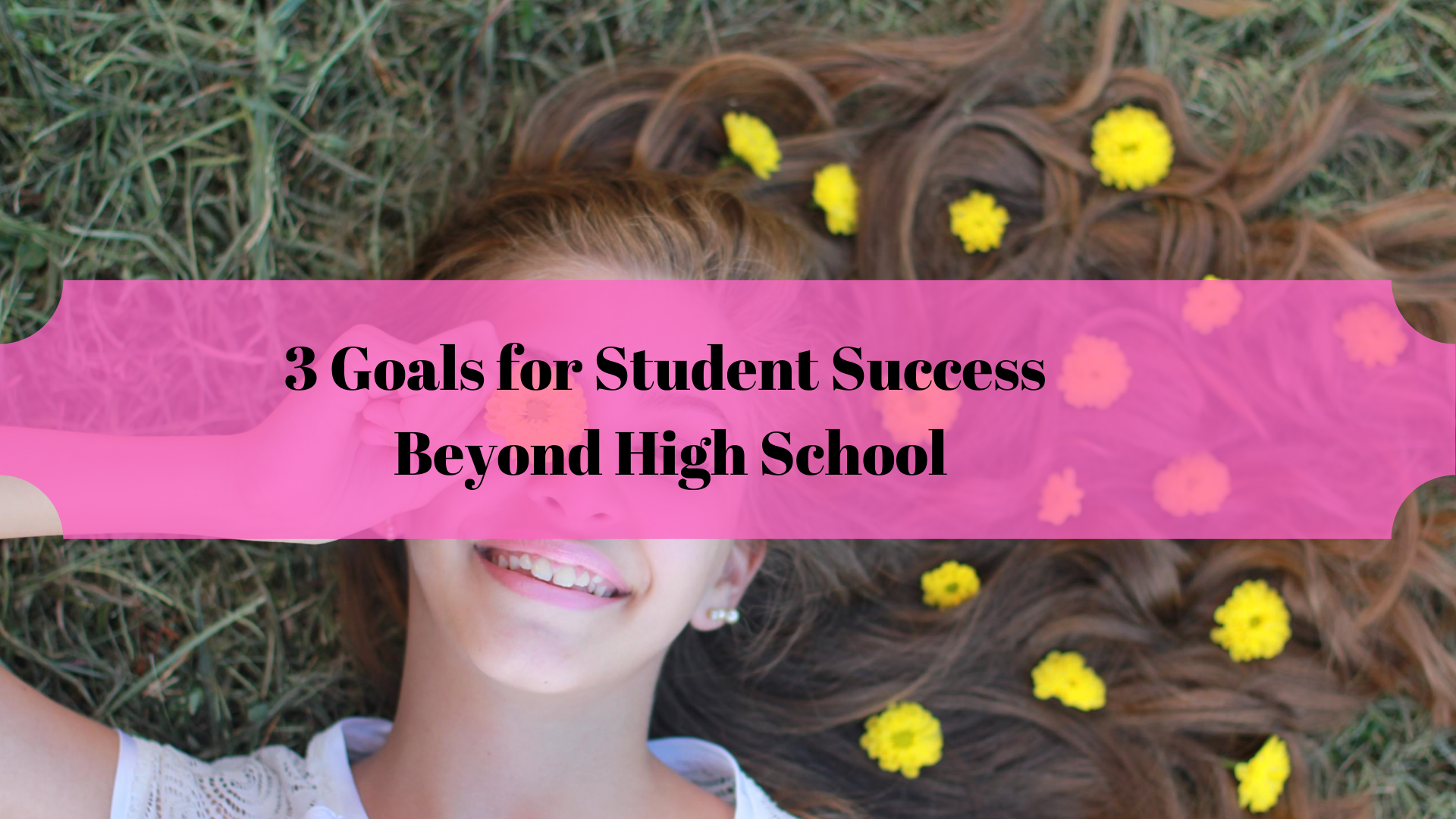- SHOP BY PRODUCT
- DISC TRAINING & CERTIFICATION TOOLS
- DISC RESOURCES
- BLOG
- SHOP BY PRODUCT
- DISC TRAINING & CERTIFICATION TOOLS
- DISC RESOURCES
- BLOG
- ALL ITEMS



There is a lot of pressure on high school students to set the right goals. Teenagers are pressured to know exactly what they want, where they are going to college, and to have a full-on life plan by the age of 18. The problem is most teens simply do not know themselves well enough nor have an idea where they should focus their energy and strengths. After many assessments, reading, and research, I found a tool that helped me organize and figure out my goals and will benefit other high school students too, and that is DISC and StudentKeys. Let’s explore three types of goals it helped me to set:
My Generation Z feels like going to college is a must or the "ideal plan" passed down from the older generations. Many parents think that if we don’t attend college, we are not going to accomplishing anything. The truth is that college may not be for everyone. In fact, many successful people did not attend or dropped out of college: Bill Gates, Steve Jobs, Mark Zuckerberg, Rachel Ray, to name a few.
Educators and parents should introduce more students to DISC to understand their individual strengths and motivations early on so students can work to set the appropriate educational goals for themselves. While I personally have determined college is right for me, a better understanding of one’s self using DISC can be a catalyst to helping struggling students find their path. By understanding how we think, study, and learn, we can set better educational goals for ourselves. No matter which DISC style you are, having self-awareness will help you figure out whether college is the best option, maybe an internship, trade school, or whatever best suits you and your personal strengths.
Directly linked to educational goals is establishing an aligning career path. Students try to take classes that correspond with their interests and what they think they want to be, but it can be difficult to truly know what you should do after high school. Some students may really struggle to find what they are interested in or where their skills will fit best in the workplace. DISC helps students clarify their strengths and determine what pursuits may be best suited for them beyond high school. Before taking the StudentKeys Strength assessment, I lacked understanding of my own skills, and, being a "C," I worked myself into a panic about planning for a perfect career. After gaining an explicit idea of what my strengths are and the suggestions for career paths I would thrive in, I stopped questioning my future career choice. One of my main interests is psychology, so I began scheduling my high school classes around that subject. Knowing your strengths helps to understand who you are as a person and which future career options will naturally fit you.
While there is so much pressure on students to make the right career and educational choices, a very underrated target is emotional growth. Through adolescence and the awkward teenage years, emotional stability and growth are one thing educators, parents and schools do not focus on enough. As we grow up, we experience more than we can handle sometimes. Some of the most important goals we can set for ourselves are ones to help us grow emotionally and mentally. Finding an outlet to discuss emotions or what’s on our minds, or having a safe place to open up is vital in personal growth.
After taking the PeopleKeys DISC assessment and learning, as a "C" style, my greatest fear is criticism, I really need to work on not being too hard on myself or take criticism from others too personally. I also need to work on opening up to others and expressing how I feel. I truly believe this is the most important goal any teenager can set for themselves. Each DISC style needs to work on overcoming whatever fears or limitations are holding you back, whether it be learning how to be vulnerable and do things on your own (S styles), becoming a better listener (D styles), or learning how to say “no” instead of over-committing (I styles). We can all benefit from setting a goal of where we want to be in the next few weeks, months, and years, with our emotions and mental well-being.
Are you ready to start your journey to success beyond high school? Start with the StudentKeys Strengths Report.

©1985- PeopleKeys, Inc. All Rights Reserved
WORKING DAYS/HOURS
Mon - Fri / 8:30AM - 5:00PM EST
